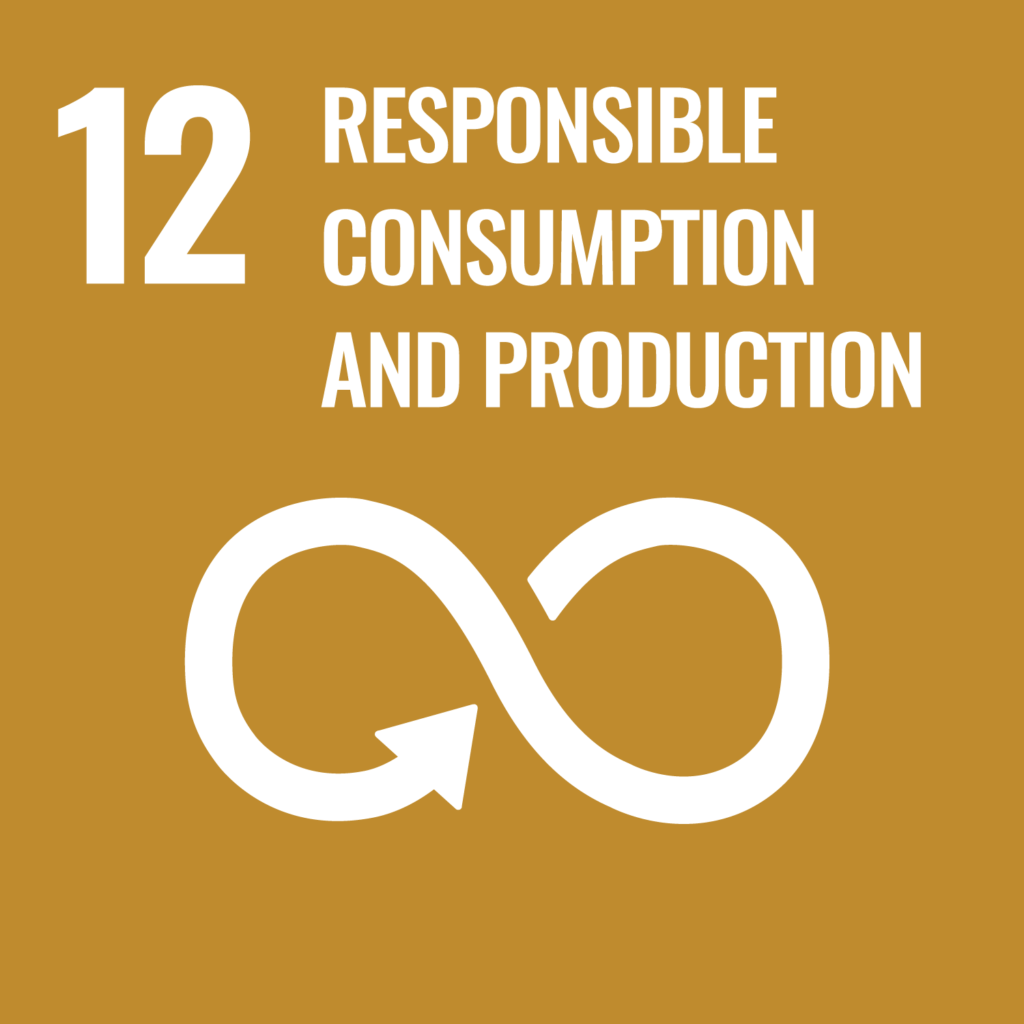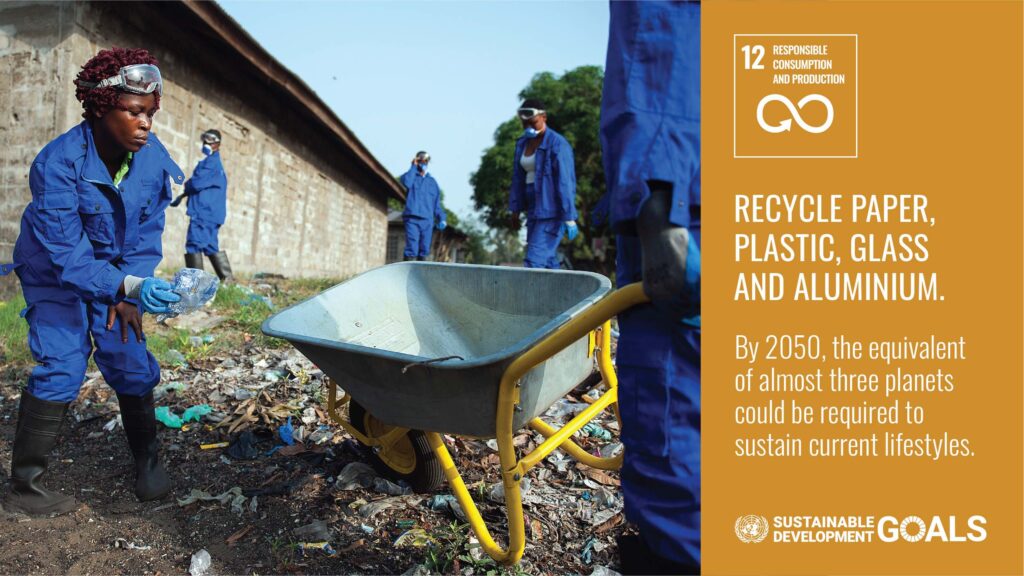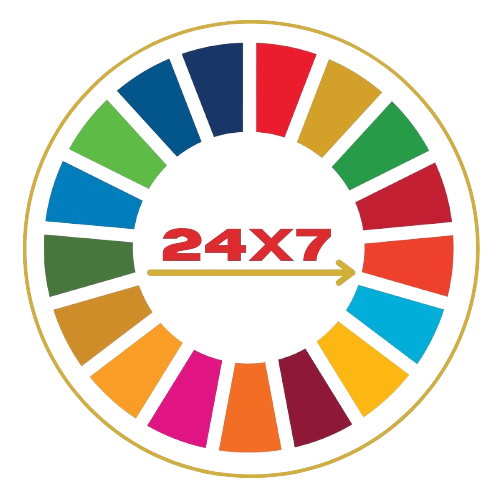
To ensure sustainable consumption and production patterns
Goal 12 is about ensuring sustainable consumption and production patterns, which is key to sustain the livelihoods of current and future generations.
Our planet is running out of resources, but populations are continuing to grow. If the global population reaches 9.8 billion by 2050, the equivalent of almost three planets will be required to provide the natural resources needed to sustain current lifestyles.
We need to change our consumption habits, and shifting our energy supplies to more sustainable ones are one of the main changes we must make if we are going to reduce our consumption levels. However, global crises triggered a resurgence in fossil fuel subsidies, nearly doubling from 2020 to 2021.
We are seeing promising changes in industries, including the trend towards sustainability reporting being on the rise, almost tripling the amount of published sustainability over just a few years, showing increased levels of commitment and awareness that sustainability should be at the core of business practices.
Food waste is another sign of over consumption, and tackling food loss is urgent and requires dedicated policies, informed by data, as well as investments in technologies, infrastructure, education and monitoring. A staggering 931 million tons of food is wasted a year, despite a huge number of the global population going hungry.

TARGETS
12.1 Implement the 10-year framework of programmes on sustainable consumption and production, all countries taking action, with developed countries taking the lead, taking into account the development and capabilities of developing countries
12.2 By 2030, achieve the sustainable management and efficient use of natural resources
12.3 By 2030, halve per capita global food waste at the retail and consumer levels and reduce food losses along production and supply chains, including post-harvest losses
12.4 By 2020, achieve the environmentally sound management of chemicals and all wastes throughout their life cycle, in accordance with agreed international frameworks, and significantly reduce their release to air, water and soil in order to minimise their adverse impacts on human health and the environment
12.5 By 2030, substantially reduce waste generation through prevention, reduction, recycling and reuse
12.6 Encourage companies, especially large and transnational companies, to adopt sustainable practices and to integrate sustainability information into their reporting cycle
12.7 Promote public procurement practices that are sustainable, in accordance with national policies and priorities
12.8 By 2030, ensure that people everywhere have the relevant information and awareness for sustainable development and lifestyles in harmony with nature
12.A Support developing countries to strengthen their scientific and technological capacity to move towards more sustainable patterns of consumption and production
12.B Develop and implement tools to monitor sustainable development impacts for sustainable tourism that creates jobs and promotes local culture and products
12.C Rationalise inefficient fossil-fuel subsidies that encourage wasteful consumption by removing market distortions, in accordance with national circumstances, including by restructuring taxation and phasing out those harmful subsidies, where they exist, to reflect their environmental impacts, taking fully into account the specific needs and conditions of developing countries and minimizing the possible adverse impacts on their development in a manner that protects the poor and the affected communities

